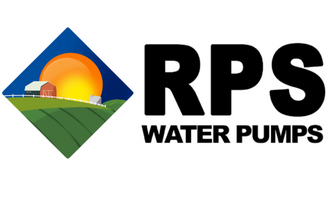

Answering Your Water Pump Questions
with RPS Engineer Mike

Is it better to oversize or undersize a well pump?
Should you oversize or undersize your submersible well pump?
The first step is defining what we mean by sizing…
- Sizing based on the HP of the well pump
- Sizing based on the GPM rate of the well pump
It's hard to recommend doing either as you should try and find the pump that fits your needs the best, and fits the gallon per minute rate of your well. RPS always recommends starting with calculating the total dynamic head of your well — find help using our well pump size calculator. Once you know that number, use it as a minimum threshold for evaluating pumps.
RPS engineers generally recommend oversizing the pump, as long your well can handle it.
Dangers of Undersizing a Well Pump
If you undersize a pump it could look like two scenarios….
- Not enough gallons per minute for your needs. For example your household may use 15 GPM on a regular basis, but the pump only produces 5 GPM and can’t keep up.
- Total dynamic head of the pump isn’t sufficient. Pretty disappointing when this happens for the well owner, they install the pump and hook all the electrical up, but when they turn the pump on, no water makes it to the top of the well. The pump just isn’t powerful enough to push water against gravity. This situation can only be resolved by uninstalling the pump and purchasing a new one!
When sizing a pump and calculating total dynamic head, well owners often forget to include factoring in a pressure tank. If you are pumping to a pressure tank and you undersize your pump, it may not have enough power to pump out of the well and overcome the back pressure of your pressure tank. This would cause the pump to stall out, and you can damage your pump and cause it to burn out completely. A properly sized well pump pressure switch can help prevent these issues. If the pump is undersized, but can still handle the back pressure of the pressure tank, you will likely be getting a very weak water flow rate out of your plumbing. If your pressure tank is large enough (100+ gallon models) this may not be a big issue, as the tank will be able to store enough water to get you through a shower or doing the dishes without a drop in flow rate. But if you have a smaller pressure tank (less than 100 gallon models) you may experience a loss in flow rate if your pump doesn’t pump fast enough to keep up with the demand.
Choosing to Oversize a Well Pump
Oversizing a pump can come with some of its own issues, but it is generally a better idea than undersizing a pump. Ideally, you will want to find a pump where you aren’t pushing the components to their max, and slightly over-sizing a pump safely accomplishes this. This is especially true for deep well pumps, which need to overcome greater depths. To be clear - we’re not recommending that you purchase a 5HP pump when you only need around a 3/4HP. A more realistic jump would be to get the next size HP up from what you need, like a 1HP instead of a 3/4HP. A pump that can push 1000’ vertically will work no problem on a 100’ well, but you will likely be overpaying at that point for a pump you don’t necessarily need.
There is only really one issue that can arise from oversizing a pump, well besides just paying too much. If your well is only capable of producing 10GPM, then you will not want to put a 30GPM pump into the well because you will run the risk of pumping your water level down and running your pump dry (assuming you don’t have a low water protection system in place). You usually want to try and pump a little less than what your well can produce so that you don’t pump the well dry. So if your well can produce 10GPM, getting a pump that will push 8GPM is a good idea. Of course this all depends on what you are using the water for, and recommendations can change on a case by case basis, but generally speaking you want to match or go below your well’s refresh rate.
In practice, the only thing that can go wrong with oversizing your pump is that you can run your pump dry, and that can damage it if it runs dry for too long and it overheats. While this is bad, it can be mitigated with a low water protection system. The only other issues that can come with an oversized pump are overpaying for a larger pump than you need, and a higher electricity bill that can come with running a larger well pump.
All things considered though, oversizing a pump is less likely to cause issues than undersizing a pump. But it is always best if you go over your specific situation with someone who can help size you for the correct well pump. If you have any questions, you can always give us a call and talk to one of our pump specialists—and they can help you get sized using our well pump size chart to find the best system for you.
Looking for more background information about the issues of an oversized well pump? Check out this blog!
Take the Next Step to Water Independence
Learn More About Water Pumps
-
 If you’re considering replacing a well pump and it’s your first time, you may have questions about long it may take. We often say a full install only has to be a couple of hours, but is that actually accurate?Read now
If you’re considering replacing a well pump and it’s your first time, you may have questions about long it may take. We often say a full install only has to be a couple of hours, but is that actually accurate?Read now -

How many GPM is a good well pump?
Water needs can differ significantly depending on circumstances, and you may need a submersible well pump with a significantly higher or lower flow rate, depending on household size, irrigation needs, and sprinkler use.Read now -

Can you put in too big of a pressure tank?
When it comes to sizing a well pressure tank, there really isn’t an upper limit as to how big of a tank you can put in. There are some pros and cons to different size pressure tanks, and they can have an impact on the lifespan of your pump.Read now





